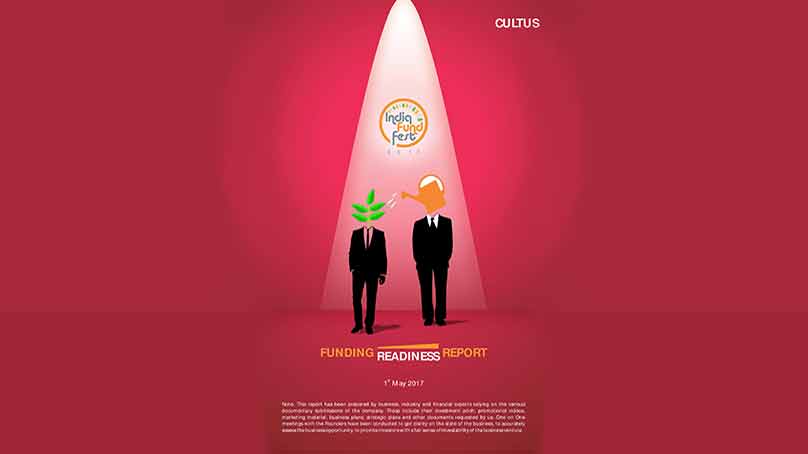
Enter Data, Print Report, Get Funded

Gone are the days when a simple elevator pitch was enough to attract investor attention. Start-ups are increasingly punching out detailed reports and analytics to build their case for investments. Nalin Singh, co-founder of Natio Cultus Consultancy tells us about ‘Funding Readiness Report.’
Until the early 80s, banks used to lend to borrowers purely on the merit of an internal assessment of a client’s credit worthiness. Then came the credit rating agencies, and a credit rating report became mandatory.
Translate this to the start-ups ecosystem. An angel investor interested in initial stage funding most likely depends on his gut feeling and experience to decide on investing in a start-up, without collateral assets or a third party investment analytics report. For larger investments, typically, elaborate due diligence processes and third party evaluations are carried out. However, for the majority of smaller investments, the investor would have to spend a disproportionate amount of time vetting ideas that meet their investment philosophy.
However, as is well known by now, the start-up ecosystem in India is maturing rapidly. There are many investors and a large number of entrepreneurs. How can the supply best meet and serve the demand? Can an investor still rely only on his gutfeel or word of mouth?
It is the era of professional management in start-ups, and investors are also becoming more mainstream in their assessment of funding demands. We find that an increasing number of investors are calling for third party assessments and analytical data to supplement their decision-making processes.
Such rigorous processes allow investors to narrow their search and engage more efficiently with entrepreneurs and ideas that suit their investment philosophy. In the recent ‘Funding Readiness Report’ by Natio Cultus, we catch a few insights into what investors are now looking for before they meet with the entrepreneur to discuss funding possibilities.
The report positions itself as a unique document that is based on a proprietary algorithm. This algorithm enables investors to assess the funding readiness of a start-up. “We provide an overall rating as well as ratings across eleven parameters like the potential of the idea, execution capability, risks, etc.,” says Sunil Girdhar, Festival Mentor of India Fund Fest and the brains behind the creation of the report. The report has been developed specifically for the Indian scenario by Natio Cultus for the India Fund Fest.
The report allows the investor and the entrepreneur to optimise their limited engagement time and provides a higher starting base for conversations to develop. Judging by the response that India Fund Fest got with 6000+ applicants with 9 per cent of them moving to the Funding Readiness Report stage, the report appears to be a resounding success.
The investor community has responded with wide-scale adoption and acceptance of the report. “Investors have actively come forward with suggestions as well as inputs on reading the report’s recommendations effectively. Entrepreneurs have, in turn, discovered the value of going in with such a report as it has cut down on the engagement time and improved the quality of discussions in their favour,” affirms Dinesh Singh, chairman of the Festival.
The number of start-ups have gone up three times in the past couple of years and funding deals are exploding in number by the day, thus it appears logical that investment filters would come into place. “All the ratings are calibrated to the company’s nearest peer group to provide a perspective of how the start-up fares against similar companies. The ratings are further supplemented with a subjective assessment and commentary from the evaluator who spends time with each company to understand their pitch, the business model, capabilities of the team as well as associated risks in relation to the investment ask,” Mr. Girdhar further explains.
Mainstreamed investment assessment procedures can be beneficial for the industry in the long run, and result in a more level playing field for start-ups. For investors, the processes will provide necessary data points in a methodical manner to enable decision-making of higher quality.









